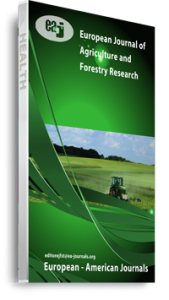The subject of food waste is one in which has been of great concern to many governments and countries in the world. Combatting the issue of food waste has therefore been in focus in recent times. Reduction in food waste would preserve the environment and improve the lives, livelihood and economies of several households across the globe. In order to properly reduce food waste, it is imperative that there should be an understanding of the factors that influence household food waste . This research paper presents data from 120 households sample in Uyo Local Government Area. The result shows that an average of ₦8,110.94 worth of food is wasted monthly among farming households in Uyo Local Government Area. From the results, there was a positive relationship between the value of food waste and household size, household monthly income and access to credit of households. This paper also identified the stages where household food waste was experienced to include storage, during preparation, cooking and also leftovers after eating. It also considered how much waste was generated by households in these stages.
Keywords: farming, food waste, households, socioeconomic characteristics

